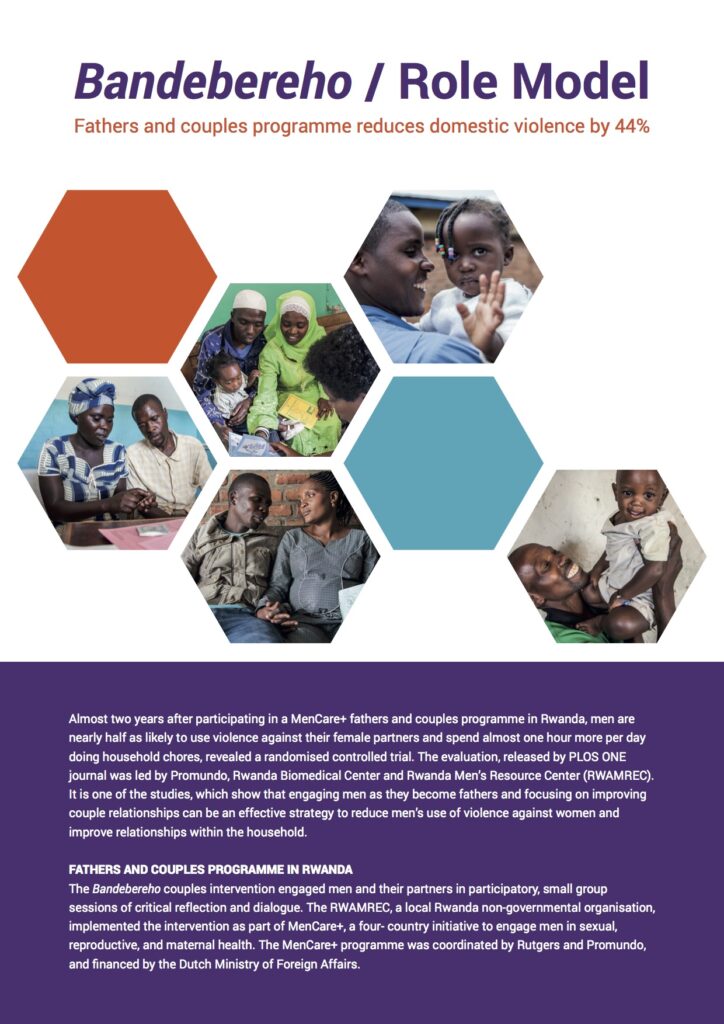This Prevention+ case study highlights the MenCare+ program in Rwanda, the precursor of Prevention+. Results from the randomized control trial showed violence by men against their partners was reduced by over 40%. The program (known as Bandebereho in Rwanda, meaning “role model”) built the participants’ skills to have stronger, more equal and nonviolent relationships among couples. Focusing on power and gender roles, the program transformed ideas and norms about who does what and who has power in the household, as well as in intimate relations. RWAMREC, a local non-governmental organization, implemented the intervention as part of MenCare+, a four-country initiative to engage men in sexual, reproductive, and maternal health.
Prevention+ is a five-year, multi-country program that envisions a world where healthy, respectful, and equal relationships are the norm. To contribute to making this a reality, the program addresses the root causes of gender-based violence: the social, economic, religious, and cultural contexts that shape attitudes and behavior that lead to violence. Prevention+ takes a multi-level approach in order to ensure long-lasting impact, and to transform the mutually reinforcing social and structural factors that support gender-based violence (GBV) and allow it to persist. The program actively engages young and adult men as partners and advocates for change – alongside young and adult women – to challenge and transform harmful gender norms and practices.
View the other Prevention+ case studies here: Indonesia, Lebanon, Pakistan, and Uganda. Prevention+ is led by a consortium of Rutgers, Sonke Gender Justice, and Equimundo, and funded by the Dutch Ministry of Foreign Affairs.
Resources
English
Bandebereho/Role Model: Fathers and Couples Program Reduces Domestic Violence by 44%
PDF Preview